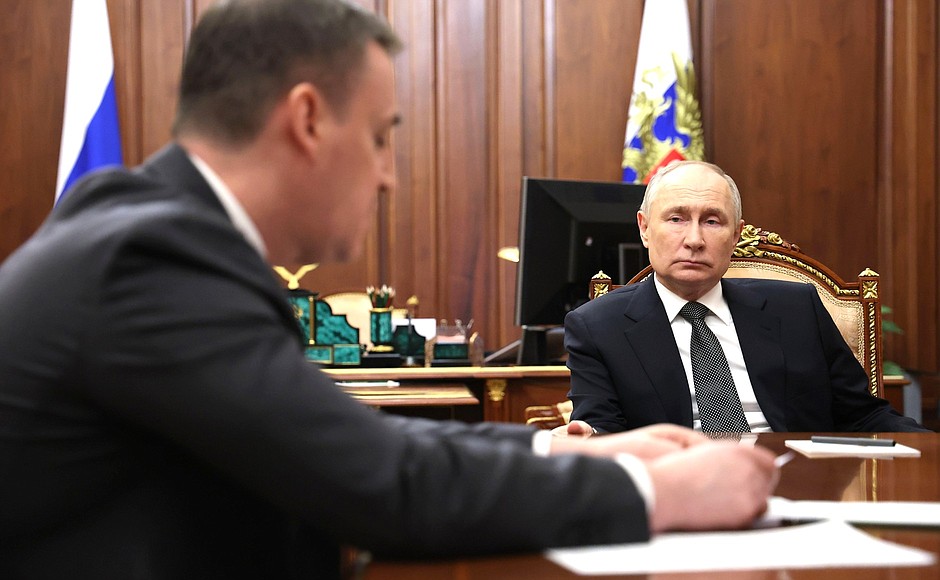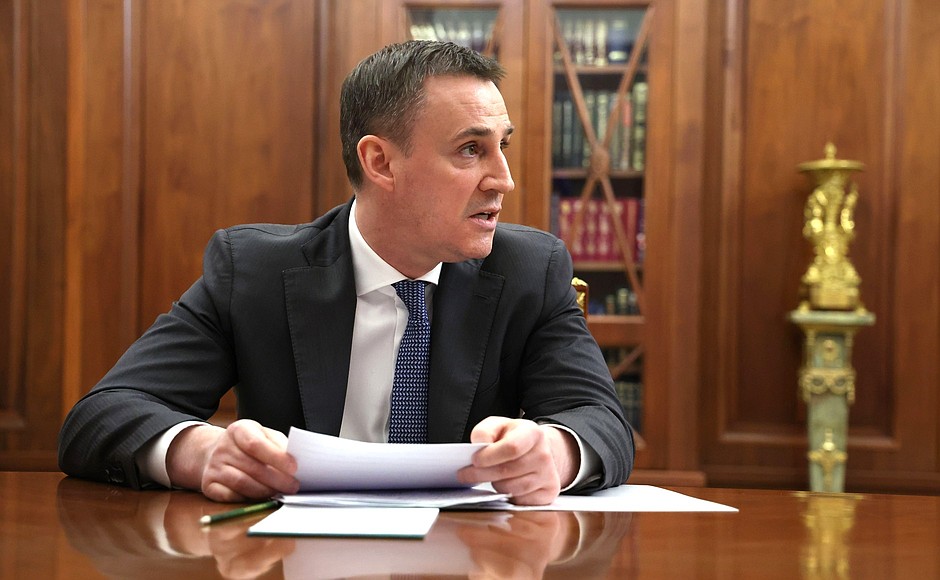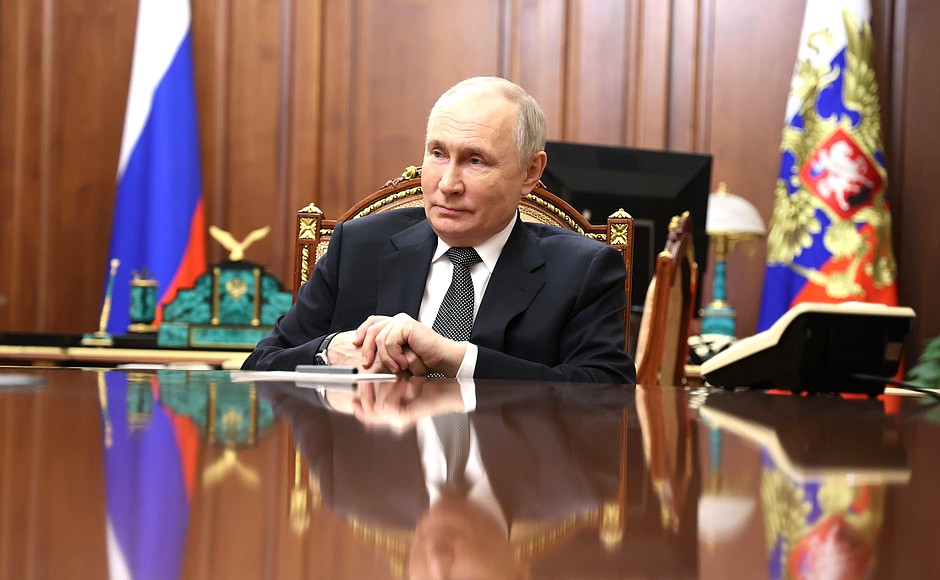President of Russia Vladimir Putin: Good evening.
We would like to discuss our humanitarian wheat shipments to African countries.
Please.
Minister of Agriculture Dmitry Patrushev: Mr President,
As per your instruction, issued in July 2023 at the Russia-Africa Summit, the Ministry of Agriculture and the United Grain Company completed the delivery of wheat shipments to the six poorest countries on the African continent, with assistance and support from the Foreign Ministry and the Ministry of Transport.
In fact, it is the first time that Russia has implemented such a large-scale humanitarian project. I would like to say a few words about this project. The first ship sailed out on November 7, 2023, and it took each ship 30 to 40 days to reach their destinations. The last ship arrived in Somalia in late January and unloading was completed on February 17.
As a result, we delivered 200,000 tonnes of grain to the African continent almost all at once. Mali, Burkina Faso, Zimbabwe and Eritrea received 25,000 tonnes of grain each, and we sent 50,000 tonnes of grain to Somalia, as well as the same amount to the Central African Republic.
Vladimir Putin: How many countries were involved? Please list them once again.
Dmitry Patrushev: Mali, Burkina Faso, Zimbabwe and Eritrea received 25,000 tonnes each. Somalia and the Central African Republic received 50,000 each.
In all, we delivered 200,000 tonnes of humanitarian aid to the African continent. Mr President, we have therefore carried out your instruction in its entirety.
Vladimir Putin: Have you established contacts with your colleagues and friends from these African countries?
Dmitry Patrushev: Yes. We maintain relations following the Russia-Africa summit, and we organise our work accordingly. Despite problems, we were able to fairly rapidly deliver this amount of wheat to these countries, which, of course, badly need it.
Dmitry Patrushev: Mr President, with your permission, I would like to say a few words about overall agrarian exports.
Vladimir Putin: Please do.
Dmitry Patrushev: In 2023, we sold over 66 million tonnes of grain, worth almost $16.5 billion, abroad. This is an absolute record for the Russian Federation. I am now talking about 2023. Wheat, corn and barley accounted for the bulk of our volumes. We retain the top global position in terms of wheat trade. Russia is the main supplier of wheat to countries such as Egypt, Turkey, Saudi Arabia, India and China.
Despite the current global price slump, we continue to generate higher agricultural produce export revenues. In 2023, these revenues totalled $43.5 billion, $1.5 billion more than in 2022.
I would like to mention just one figure: In 2000, our export revenues totalled $1.4 billion. In effect, in 24 years, we have managed to boost agro-industrial export revenues 30 times over.
We are expanding our range of products. Apart from grain, we export substantial amounts of fish, seafood, oils, butter and fats, meat and dairy products and confectionery. Russia therefore remains a major global supplier of multiple products, and I would say that in many ways, it plays a stabilising role. In effect, we continue to expand virtually the entire range of our exports abroad.
Of course, our exports encompass new regions. Over 150 states are buying our food today. In the past two years, we have managed to reroute our supplies to a great extent, and we now deliver 90 percent of all our products to friendly countries.
We hope that 2024 export volumes will be the same as in 2023. I have mentioned a substantial agro-industrial price slump. This year, we are set to export up to 70 million tonnes of grain.
Additionally, we will continue to expand our product range. This year, we intend to start exporting our pork to China. It took us a lot of time and effort to achieve this goal. We managed to reach an agreement last year, and pork deliveries are to commence this year.
Mr President, I would also like to say that, of course, foreign trade serves as an extremely powerful incentive for the development of the agro-industrial sector. We continue to expand our own production in order to meet our export obligations and above all to give priority to supplies for our domestic market.
To be continued.



